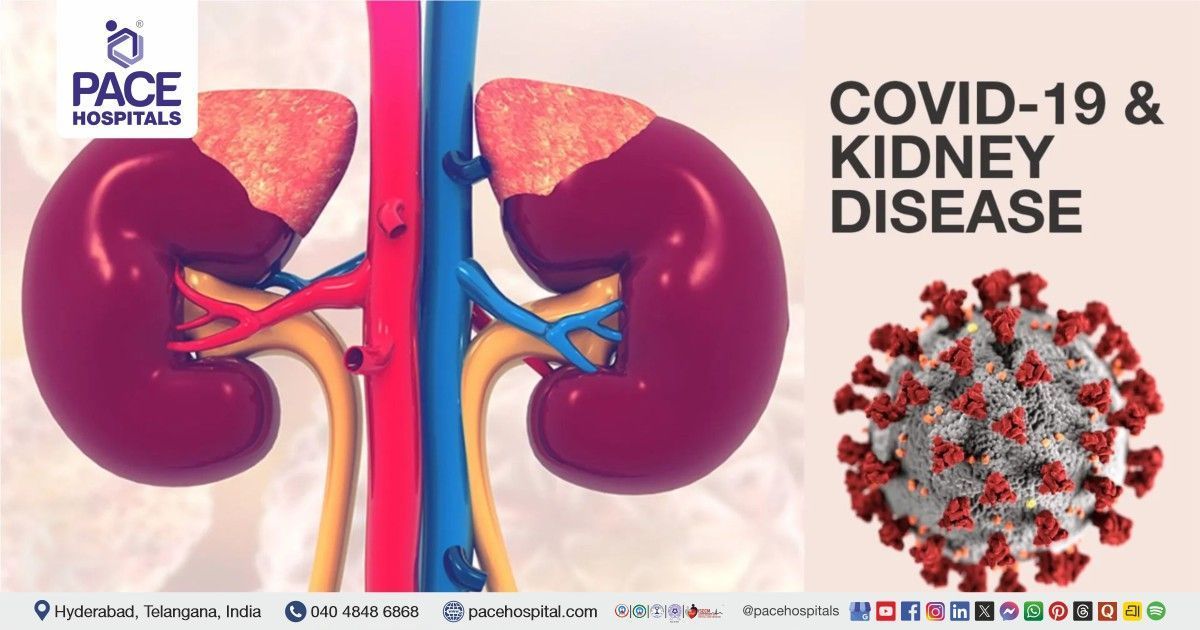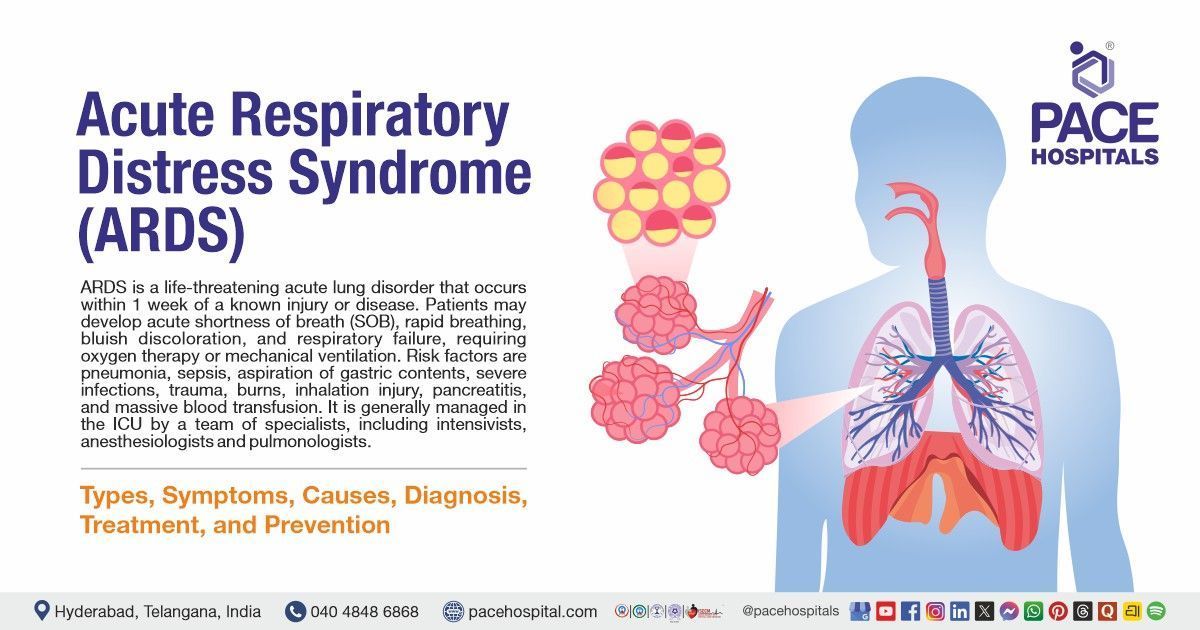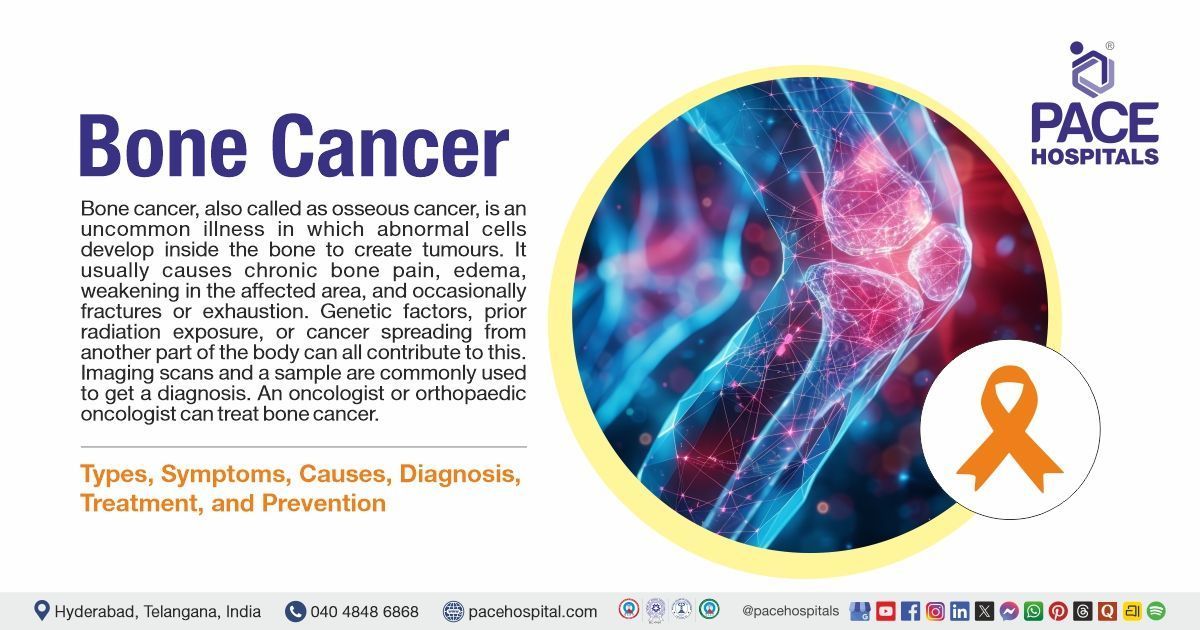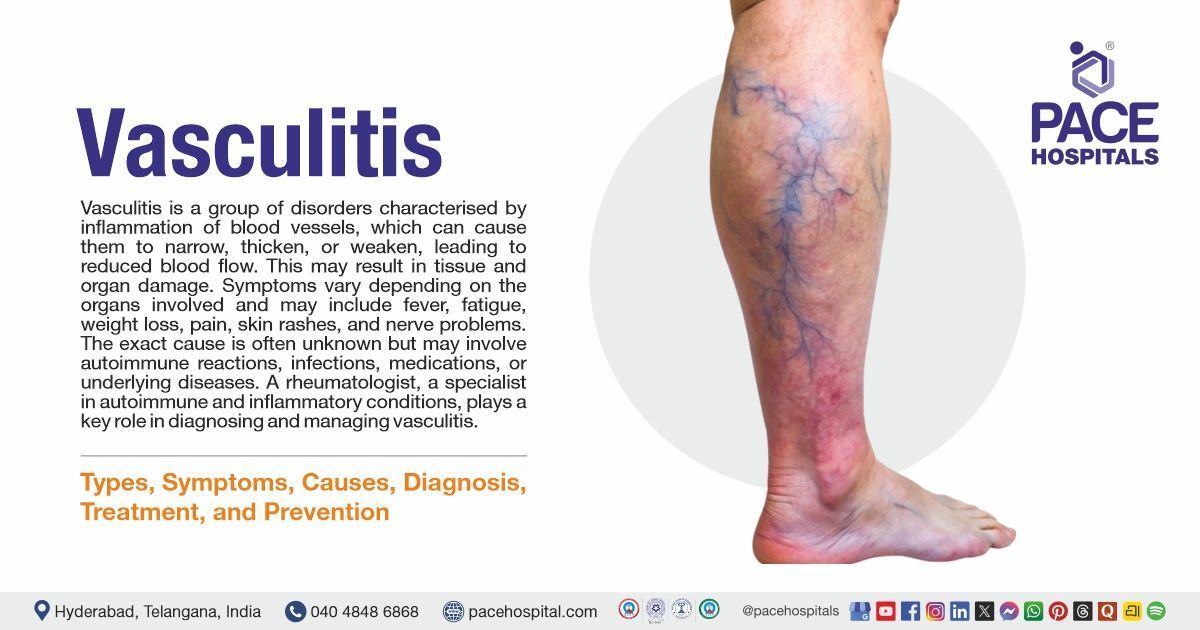Covid-19 and Kidney Disease: Important Update for Kidney Patients
PACE Hospitals
SARS-CoV-2 disease (COVID-19) primarily manifests as a lung infection with symptoms ranging from those of a mild upper respiratory infection to severe pneumonia, acute respiratory distress syndrome, and death. Kidney disease is a common chronic disease. The patients with kidney disease who appear most at risk for COVID-19 are those who undergo in-centre haemodialysis treatments thrice weekly, due to inability to self-isolate and patients with kidney transplant, due to immunosuppression. Patients with kidney disease also have other comorbidities, including hypertension, diabetes mellitus, and cardiovascular disease, that are risk factors for poor outcomes in COVID-19. People on dialysis have weaker immune systems, making it harder to fight infections.
Dialysis & COVID-19
- Studies done in dialysis patients with COVID-19 showed that dialysis patients with COVID-19 may not have fever and cough and they can present sometimes only with lack of appetite and fatigue.
- Patients with Kidney failure has a more severe disease course than general population with higher rates of complications like shock, lung and cardiac issues.
- Patients on regular haemodialysis must go to all dialysis treatments as missing even one treatment can make them very sick or lead to death.
- Precautions at dialysis units to prevent spread of COVID-19:
- Checking all patients who come into the dialysis units for signs (temperature and oxygen saturation) and symptoms (fever, cough) of COVID-19
- Informing dialysis units prior to scheduled dialysis session upon having symptoms of COVID-19 and exposure to coronavirus
- Universal masking
- Physical distancing between each dialysis patient during dialysis sessions
- Frequent hand hygiene
- Keeping all patients who show any signs of illness at a safe distance from other patients
- Strict methods of cleaning and disinfecting the entire treatment area, including machines and other surfaces
- Rapid testing of patients suspected to have infection
Acute Kidney Infection & COVID-19
- Patients with COVID-19 with normal kidney function before the illness can develop abnormality in kidney function which is called acute kidney injury (AKI).
- COVID-19 can affect Kidney by Kidney tubular injury (acute tubular necrosis) with septic shock, microinflammation, increased blood clotting, and probable direct infection of the kidney.
- Incidence rates of AKI is 15% of hospitalized patients and 20% and higher in ICU patients with many requiring dialysis treatments.
- Patients with AKI have severe COVID-19 infection and higher death rates.
- Patients who developed AKI and patients with blood or protein in urine during illness with COVID-19 should follow up with Nephrologist after recovery as there is increased risk of Chronic Kidney Disease (CKD) in these patients on long term
Medication & COVID-19
- Patients with kidney disease (CKD, autoimmune diseases) and those who underwent kidney transplant are on multiple medications like blood pressure lowering medications, immunosuppressants etc.
- Immunosuppressive medicines (these work by keeping the immune system less active) can make it harder for the body to fight infections
- People with an autoimmune disease (example - Lupus nephritis) may be prescribed certain immunosuppressive medicines which should be continued
- Blood pressure medications called angiotensin converting enzyme inhibitors (ACEs) and angiotensin receptor blockers (ARBs) should NOT be stopped. Stopping them could lead to a heart attack, stroke, or decreased kidney function.
- Patients with kidney transplants should not stop taking their immunosuppressants or lower their dose. Doing that will most likely lead to the loss of your donated kidney
- Keep taking any medicine as prescribed, wash your hands, maintain good hygiene, practice physical distancing, seek early care in case of new symptoms and follow recommendations by your health care provider
Frequently Asked Questions (FAQs) on Covid 19 & Kidney Disease
Why are patients with kidney disease considered high-risk for COVID-19?
Individuals with chronic kidney disease often have weakened immune responses and underlying metabolic imbalance. Many people have comorbid diseases like diabetes, hypertension (high blood pressure), or cardiovascular disease, which increases their vulnerability. Because of their weakened immune systems, this population is more vulnerable to viral infections.
Can COVID-19 directly affect kidney function?
Yes. Some research based studies has shown that SARS-CoV-2 can directly infect kidney tissue. Acute kidney injury may also be caused by severe inflammation, dehydration, and irregular clotting during infection. Temporary renal dysfunction can occur in persons who have never had kidney disease before.
What is acute kidney injury (AKI) in COVID-19?
Acute kidney injury refers to a sudden decline in kidney function over hours or days. Low oxygen levels, hemodynamic instability, or significant systemic inflammation can all lead to AKI in COVID-19. For long-term damage to be avoided, early diagnosis by laboratory monitoring is essential.
How does COVID-19 impact kidney transplant recipients?
Immunosuppressive drugs are used by kidney transplant recipients, making them more susceptible to infection. While these medications are required to avoid rejection, they may need to be changed during active infection with the supervision of a specialist.
What symptoms may indicate kidney involvement in COVID-19?
Signs of renal involvement mainly includes decreased urine output, leg edema, weariness, or abnormal laboratory results. However, some people may not exhibit any symptoms, needing blood tests.
Can COVID-19 increase the need for dialysis?
In extreme cases of acute renal damage, dialysis may be necessary. Some patients recover kidney function following an infection, while others may require long-term renal support due to an underlying kidney problem.
Should kidney patients receive COVID-19 vaccination?
Vaccination is strongly recommended for individuals with kidney disease, including dialysis and transplant recipients. Although immune response may be slightly reduced in some patients, vaccination significantly lowers the risk of severe illness and hospitalization.
Are dialysis patients at greater risk during the pandemic?
Patients receiving hemodialysis must attend regular treatment sessions, increasing exposure risk. Furthermore, dialysis patients frequently have a number of comorbidities, which might make infection outcomes worse. In dialysis settings, strict infection control procedures are crucial.
Does COVID-19 worsen pre-existing chronic kidney disease?
COVID-19 may accelerate kidney function decline in individuals with chronic kidney disease (CKD). Episodes of dehydration, inflammation, or AKI during infection can reduce baseline kidney reserve. Close follow-up after recovery is recommended to assess residual function.
Can mild COVID-19 still affect kidney function?
Even mild infections may cause temporary changes in kidney markers, especially in patients with existing CKD. Urine output and serum creatinine levels are monitored both during and after infection to detect any early alterations.
Is protein in urine common in COVID-19 patients?
Certain studies have documented proteinuria in hospitalized COVID-19 patients. This could be an indication of inflammation-related damage to kidney filtration structures. Persistent protein loss necessitates consultation with an experienced nephrologist.
How does dehydration during COVID-19 affect kidneys?
Dehydration can occur as a result of fever, decreased appetite, and diarrhea during an infection. Dehydration reduces renal perfusion and may lead to acute kidney damage, particularly in people with limited kidney reserve.
Are blood clotting issues linked to kidney complications in COVID-19?
Yes, COVID-19 is associated with increased blood clotting tendency. Microvascular clot development can reduce renal blood flow, contributing to acute damage. Early anticoagulation therapies in hospitalized patients may lessen this risk.
Can COVID-19 cause long-term kidney damage?
After a severe infection, some patients develop chronic renal impairment. Long-term surveillance is critical, especially for patients who experienced AKI while hospitalized.
Share on
Request an appointment
Fill in the appointment form or call us instantly to book a confirmed appointment with our super specialist at 04048486868











